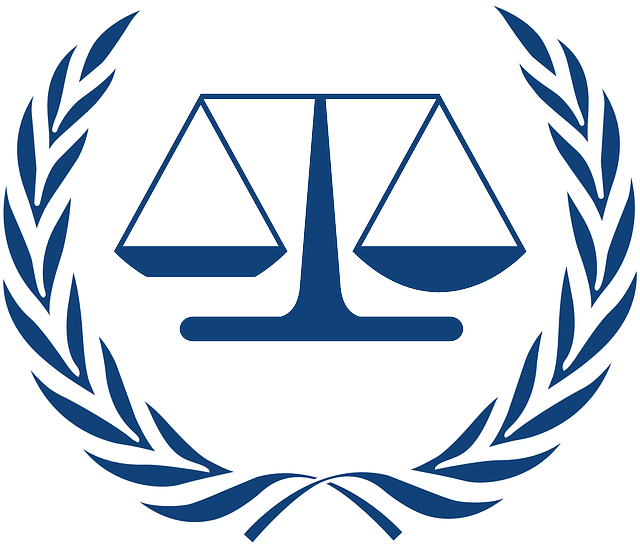Contempt of court cases require specialized legal representation to navigate complex procedures and protect client rights. When adjusting requests are involved, experienced attorneys interpret nuances, prepare arguments, challenge evidence, and advocate for alternative resolutions. Key elements include willful conduct, knowledge of the order, and ability to comply. Accused individuals should document communications and decisions while experts navigate laws and ambiguities for favorable outcomes.
In the intricate landscape of legal disputes, understanding contempt of court is paramount. This article explores the nuanced world of legal representation in contempt adjustment requests, providing a comprehensive guide for both practitioners and individuals navigating this complex process. From grasping the fundamental concepts of contempt of court to employing effective defense strategies, we delve into every step. Learn about grounds for adjustment, the filing process, and the critical role lawyers play, ensuring you’re armed with knowledge in this high-stakes arena.
- Understanding Contempt of Court: Basic Concepts
- Role of Legal Representation in Contempt Cases
- Grounds for Requesting Contempt Adjustment
- Process of Filing a Contempt Adjustment Request
- Arguments and Evidence Required for Defense
- Strategies for Effective Legal Defense Against Contempt
Understanding Contempt of Court: Basic Concepts

Contempt of court is a legal concept where an individual or entity fails to comply with a court order, intentionally disobeys judicial proceedings, or shows disrespect for the authority of a judge or tribunal. It’s a serious matter that can have significant consequences. When it comes to adjustment requests, having competent legal representation is crucial to navigating this complex issue effectively.
The basic concepts involve understanding the specific court orders and rules at play. Every case is unique, and what constitutes contempt varies depending on the jurisdiction and context. Legal counsel experienced in such matters can interpret these nuances, ensuring their clients’ rights are protected while guiding them through the process of correcting any non-compliance or missteps.
Role of Legal Representation in Contempt Cases

Legal representation plays a pivotal role in contempt of court cases, ensuring that individuals have access to skilled advocacy during legal proceedings. When someone is accused of contempt, having a competent lawyer by their side becomes invaluable. Legal professionals specializing in this area possess an in-depth understanding of the complex legal frameworks surrounding contempt, enabling them to navigate the intricate procedures and rules effectively.
They guide clients through the entire process, from preparing arguments to presenting them before the court. These attorneys also help individuals comprehend their rights, explain potential consequences, and offer strategic advice tailored to their unique circumstances. With their expertise, they can challenge evidence, cross-examine witnesses, and advocate for alternative resolutions, ultimately ensuring a fair hearing and protecting their client’s interests in contempt adjustment requests.
Grounds for Requesting Contempt Adjustment

In legal proceedings, a request for contempt adjustment offers a mechanism to rectify situations where an individual fails to comply with a court order. Grounds for such requests typically arise when there’s a deliberate or negligent disregard for a mandate issued by a judicial authority. This could involve non-payment of financial obligations as directed, failure to surrender assets, or refusal to cooperate in matters of evidence disclosure.
Key elements that constitute contempt of court include willful conduct, knowledge of the order, and the ability to comply yet choosing not to. Legal representatives play a pivotal role here by presenting compelling arguments and gathering necessary evidence to support their client’s case during such adjustments. Their expertise ensures the process is navigated smoothly, ultimately leading to either a resolution or further legal action if warranted.
Process of Filing a Contempt Adjustment Request

The process of filing a contempt of court adjustment request involves several crucial steps. It begins with reviewing the original court order to understand the specific rules and expectations set forth by the judge. This step is essential as it ensures your request aligns with the established guidelines, which are designed to maintain the integrity of legal proceedings.
Once you’ve confirmed the validity of your case, the next phase involves preparing and submitting a detailed written request to the court. This document should clearly articulate why there has been a change in circumstances that warrants adjusting the original order. Supporting evidence, such as court records, financial statements, or witness affidavits, is then compiled and included to strengthen the argument. This meticulous approach ensures a fair hearing where all relevant facts are considered by the judge when making their determination regarding the contempt of court adjustment request.
Arguments and Evidence Required for Defense

When facing a contempt of court charge, an individual or entity must be prepared to present a robust defense. The primary goal is to demonstrate that there was no willful intention to disregard or disobey a court order. Arguments should focus on whether the alleged actions constitute direct or indirect contempt and if any mitigating factors are at play. For instance, technical violations or good-faith efforts to comply with unclear directives can be crucial points of defense.
Evidence is paramount in building a successful defense strategy. Documentation such as correspondence with legal counsel, attempts to fulfill court obligations, and records of procedural misunderstandings can all be vital. Any communication that shows an attempt to resolve issues or a sincere effort to understand the requirements is beneficial. Additionally, expert testimony may be relevant to explain complex legal matters, further emphasizing a lack of malicious intent.
Strategies for Effective Legal Defense Against Contempt

When facing a contempt of court accusation, a robust legal defense strategy is paramount. One effective approach involves thorough documentation and meticulous record-keeping. Accused individuals should meticulously document all communications, actions, and decisions related to the case, ensuring transparency and providing a clear context for their actions. This practice can help demonstrate good faith efforts to comply with court orders or resolve disputes, thereby mitigating charges of contempt.
Additionally, engaging experienced legal counsel who specializes in contempt adjustment requests is invaluable. Lawyers can navigate complex legal frameworks, provide strategic guidance, and advocate on behalf of the accused. They will scrutinize the case details, identify procedural errors or ambiguities in court orders, and formulate persuasive arguments to either have the charges dismissed or secured a more favorable outcome.






